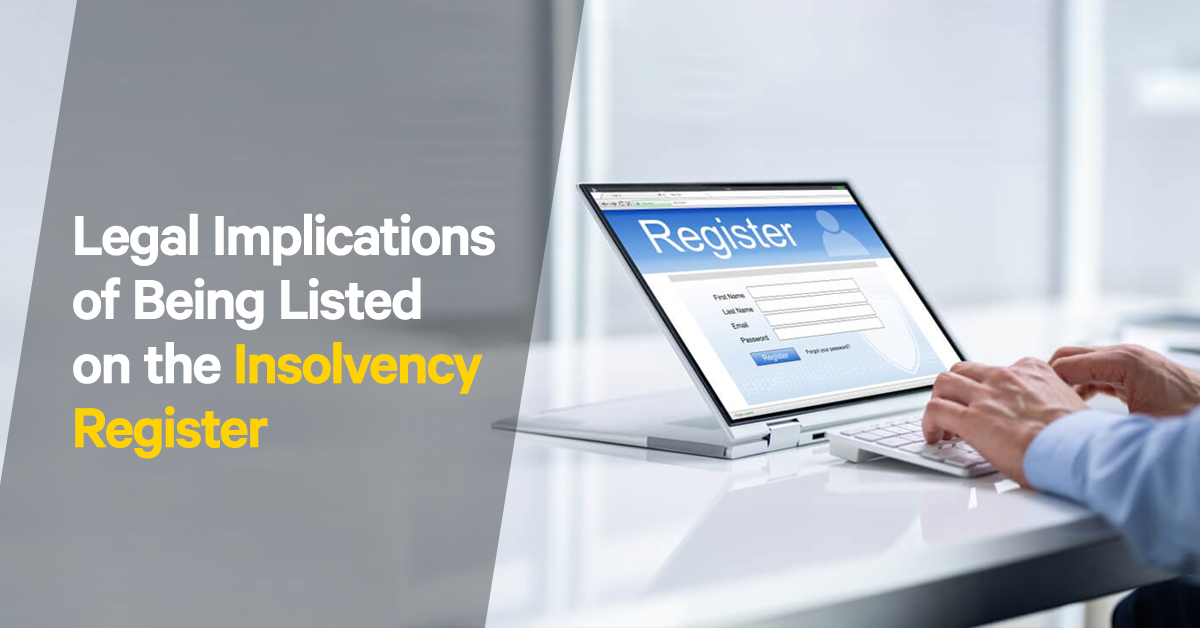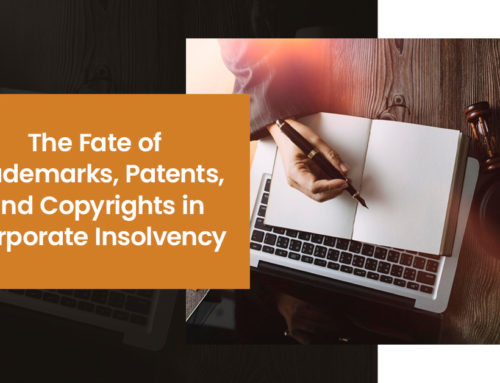Insolvency is a critical issue that can affect businesses and individuals alike. Being listed on the Insolvency Register is a sign of financial distress, with various legal issues that must be understood. This blog looks at the legal consequences and the steps you can take to handle this challenging situation. Whether you’re a business owner, a professional, or an individual facing financial difficulties, understanding the implications and available solutions is essential for navigating insolvency effectively and planning for recovery.
Understanding the Insolvency Register
The Insolvency Register is a publicly accessible database maintained by the Insolvency Service in the UK. It includes details of:
- Individuals who are bankrupt or subject to debt relief orders.
- Companies and partnerships that are in liquidation or subject to other insolvency procedures.
- Disqualified directors and individuals who are subject to bankruptcy restrictions.
Being listed on the Insolvency Register indicates that you or your business are undergoing insolvency proceedings. This transparency aims to protect creditors, inform the public and uphold the integrity of the financial system.
Immediate Legal Effects
Some legal implications take effect immediately. These can significantly affect your financial landscape and day-to-day operations. The primary areas affected include your credit rating, business activities, and asset realisation.
- Impact on Credit Rating: One of the most immediate consequences of being listed on the Insolvency Register is the negative impact on your credit rating. Credit reference agencies use the information from the register to update your credit file, which can lead to:-
- Difficulty obtaining new credit.
- Increased interest rates on any credit you can secure.
- Potential denial of services that require credit checks, such as utilities or mobile phone contracts.
- Restrictions on Business Activities: For individuals, bankruptcy and other insolvency measures often come with restrictions on business activities. These can include:
- Not being allowed to act as a company director without court permission.
- Restrictions on borrowing more than a specified amount without disclosing your insolvency status.
- Potential limitations on practising in certain professions, depending on regulatory body rules.
- Asset Realisation: When you’re on the Insolvency Register, your assets may be subject to realisation by an appointed insolvency practitioner. This means:
- Personal or business assets can be sold to repay creditors.
- There may be limitations on what assets you can keep, especially if they’re deemed non-essential.
- For businesses, this often involves selling off inventory, equipment, and other assets to settle debts.
Long-term Legal Effects
The impact of being listed on the register can also have significant long-term legal repercussions. These can affect your ability to conduct business, manage finances, and maintain professional standing.
- Legal Disqualifications: Being listed on the Insolvency Register can lead to disqualification from serving as a company director for a specified period. This disqualification can last up to 15 years and is recorded publicly, potentially affecting your professional reputation.
- Bankruptcy Restrictions Orders (BROs): In personal bankruptcy cases, you might be subject to a Bankruptcy Restrictions Order (BRO) or Bankruptcy Restrictions Undertaking (BRU). These orders can impose:
- Extended restrictions on your financial dealings beyond the usual bankruptcy discharge period.
- Extra scrutiny and reporting requirements to the Insolvency Service.
- Legal Proceedings: Creditors may start legal proceedings to recover debts owed to them, even after you’re listed on the register. This can result in:
- Court judgments against you.
- Enforcement actions such as wage garnishments or charging orders against your property.
Impact on Personal Life and Employment
Being listed on the Insolvency Register affects more than just your legal and financial standing; it also impacts your personal and professional life. Understanding these consequences is important for managing your situation effectively.
- Personal Relationships: Insolvency can strain personal relationships. The stress of financial instability, combined with the public nature of the Insolvency Register, can affect family and social dynamics. Transparency about your situation and seeking support can reduce some of these ramifications.
- Employment Effects: Certain employers may view insolvency unfavourably, particularly in industries requiring financial responsibility, such as finance or law. Your current employer might have policies regarding employees who become insolvent, potentially leading to job loss or demotion.
Navigating Insolvency and Moving Forward
Successfully dealing with insolvency and moving forward requires a strategic approach and informed decisions. Here are key steps to help you manage the process and work towards financial recovery.
- Seek Professional Advice: Consulting with an insolvency expert or financial advisor is crucial. They can provide tailored advice on managing your specific situation, exploring alternatives to insolvency, and understanding your legal rights and obligations.
- Exploring Debt Solutions: Depending on your circumstances, there may be alternative debt solutions such as:
- Individual Voluntary Arrangements (IVAs) for individuals.
- Company Voluntary Arrangements (CVAs) for businesses.
- Informal negotiations with creditors to restructure or reduce debt.
- Rebuilding Financial Stability: Post-insolvency, it’s essential to focus on rebuilding your financial stability. This can include:
- Creating and adhering to a realistic budget.
- Seeking financial education resources.
- Gradually rebuilding your credit score through responsible borrowing and timely repayments.
Legal Rights and Rehabilitation
Remember that insolvency isn’t a permanent state. Legal systems provide mechanisms for discharge and rehabilitation. For example, personal bankruptcy typically lasts one year, after which many restrictions are lifted. Companies can emerge from insolvency through successful CVAs or by being bought out.
Key Strategies for Financial Rehabilitation
Being listed on the Insolvency Register has significant legal effects that go far beyond immediate financial challenges. Understanding these is important for making informed decisions and effectively dealing with the complexities of insolvency. Seeking professional advice and proactively addressing the situation can empower individuals and businesses to progress towards financial recovery and long-term stability. Consulting experts and taking decisive actions are pivotal steps in this journey toward financial rehabilitation and security.
Reach out for Help
If you’re facing insolvency or need expert advice, contact our experienced team today. Call us on 0800 246 1845 or email us at mail@leading.uk.com for a confidential consultation. We’re here to help you work through these challenging times and find the best path forward.






